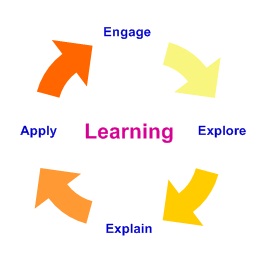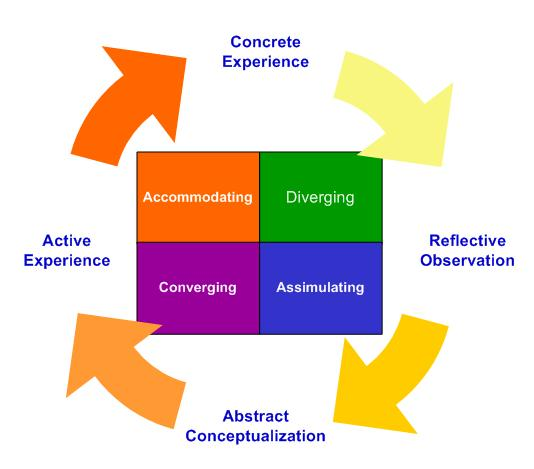The Learning Cycle
Understanding the Learning Cycle can help both teachers and learners enhance the learning process.
David Kolb’s learning theory is based on a four-stage learning cycle. Kolb believes that as we learn something we go through a learning cycle. Kolb’s four-stage learning cycle shows how experience is translated through reflection into concepts, which in turn are used as guides for active experimentation and the choice of new experiences. All stages must be followed in sequence for successful learning to take place.
The Learning Cycle indicates that it is not sufficient just to have an experience in order to learn. The cycle suggest is also necessary to reflect on the experience then to make generalizations and formulate concepts which can then be applied to new and different situations. The concepts must then be tested in new situations of experiments and new concepts from that experience.
The cycle begins with a concrete situation which we experience. Kolb believes we then consciously reflects on this experience and what it means. After we reflect on the experience, we then begin to understand what is to be learned from the experience and attempt to conceptualize a theory or model of what is observed. He suggests we then attempt to apply what we learned by creating an experiment. By actively performing an experiment which is a concrete experience, the forth stage leads back into the first stage and continues around the cycle. The learner must make the link between the theory and action by planning, acting out, reflecting and relating it back to the theory.
Four Learning Stages in the Learning Cycle
Concrete Experience
The first stage of the learning cycle entails a concrete introduction to a situation or problem which forms the basis for a new learning experience.
Reflective Observation
In the second stage, the learner thinks about and articulates the why’s and how’s of their concrete experience.
Abstract Conceptualization
In the third stage, the learner begins to understand the general concept of which their concrete experience was an example.
Active Experimentation
In the forth stage, the learner uses theory to make predictions and test their assumptions.
Kolb Learning Styles
From his Learning cycle Kolb identified four learning styles which correspond to the four stages. The styles highlight conditions under which learners learn better. These styles are:
assimilators, who learn better when presented with sound logical theories to consider
convergers, who learn better when provided with practical applications of concepts and theories
accommodators, who learn better when provided with “hands-on” experiences
divergers, who learn better when allowed to observe and collect a wide range of information
Links
Knowledge, Skills and Attitudes
Knowledge, Skills, Attitudes and Habits


